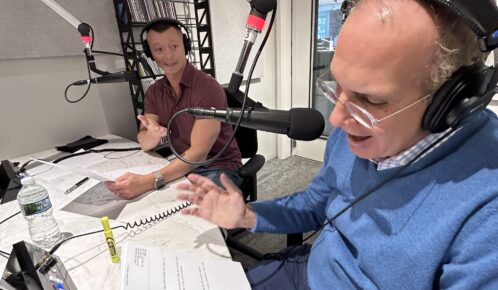Is suing after a car accident worth it? If you were injured by another driver, you may have to file a car accident lawsuit. Car accidents can leave victims facing life-changing injuries. By filing a lawsuit, victims can bolster their finances against the consequences of an accident that wasn’t their fault.
Table of Contents

Car Accident Statistics in Illinois
Around 810 traffic accidents occur every day in Illinois, based on 2021 data from the Illinois Department of Transportation. More than nine people are injured every hour from car accidents and three people killed per day, highlighting the deadliness of car accidents in the state.
Car accidents in both urban areas, such as Chicago, and rural areas, were highest on Fridays. That may be due to an increase in people drinking and driving.
Meanwhile, in both urban and rural areas, car accidents were more likely to occur between 12 and 8 PM. Many people are on the roads at that time, and, especially when returning from work, are often tired and stressed.
All in all, almost 85,400 people were injured in car accidents in 2021. Of all injuries, 11% were incapacitating injuries, such as those confining the injured to a wheelchair. The average incapacitating injury was estimated to cost $105,750. Even less severe injuries were estimated to cost around $30,570.
So, can you sue for a car accident? After a car accident, you can sue for both bodily injuries and property damage. If you can’t reach a settlement with the insurance company, a car accident lawyer can help you recover damages.
The Long Term Impact of a Car Accident
More than one out of 10 injuries from car accidents caused lifelong incapacitation. That can have long-term implications on many aspects of life, such as your ability to work and your overall quality of life.
Even if you are not incapacitated, there may be lifelong implications from a car accident. For example, scars may cause lifelong pain or emotional damage, even if you can continue in your usual line of work. You may suffer from PTSD, which can keep you up at night or give you nightmares.
Regardless of your injury, you can recover damages. They include not only the costs of your medical bills and rehabilitation, but also long-term damages, lost wages, pain and suffering, and emotional injuries.
In addition, you can file for compensation for property damages if your car requires repairs or if you need to buy a new car.
How to Determine Liability After a Car Accident Case
In most cases, the insurance company will compensate you for damages if you were not deemed liable. In Illinois, which operates as an at-fault state, you can claim compensation from either your own insurance company or the other motorist’s insurance company, if you were not more than 50% liable for the accident.
Factors That Determine Liability
Whether you choose to file a claim with your own insurance company or the other motorist’s, the insurance company will likely conduct an investigation to determine who is at fault for the accident. This investigation may include interviewing witnesses, reviewing security footage from nearby cameras, and reviewing the police report.
So, what determines liability? Common factors that aid in fault determinations include:
- Whether one driver was driving under the influence of alcohol or drugs
- If one driver violated the other’s right of way
- If a motorist was texting and driving or otherwise distracted
There are many factors that help determine liability. Fortunately, in Illinois, a modified comparative negligence law is applied. That means, even if you were somewhat at fault, you can recover compensation if the other motorist was mostly at fault (more than 50%).
Still, the proportion of your compensation, when requesting compensation from the other party’s insurance, may be determined by your overall fault percentage. So, if you were 10% at fault, you may only be eligible for 90% of the compensation, rather than the full amount.
Deciding who is more at fault isn’t an easy task. Leaving it up to the insurance companies isn’t the best idea. The insurance company is not your friend, but a lawyer is.
Car accident victims may wonder, “should I call a lawyer before my insurance company after a car accident?” If you talk with the insurance company first, you may make statements that the company could use to place you at fault.
That could reduce your overall compensation, or even cause your claim to be denied (if the company determines you were more than 50% at fault). Therefore, before filing a car accident claim or even speaking with the insurance company, consult with an attorney.
How Will an Attorney Help My Case?
A car accident attorney can help if your claim gets denied or if the settlement offered is not sufficient. You don’t have to accept the first offer the insurance company makes.
An attorney can negotiate a higher settlement. A lot of times, insurance companies won’t want things to end up in court. They would rather pay out higher compensation amounts than spend extra resources on legal fees, which would likely be more expensive in the long run.
However, trying to negotiate by yourself can be challenging. The insurance company will take you more seriously if you have an attorney by your side.
As a last resort, you could sue in court. It might be appropriate, for example, if the other motorist only had minimum liability insurance, and the insurance company paid out the maximum amount possible. While you could file a claim with your own insurance company if it has better coverage, it’s not always an option.
In such cases, suing the other driver for damages may be the best way forward to recuperate your losses. The minimum liability insurance for bodily injuries in Illinois is only $25,000 per person and up to $50,000 per accident. Serious injuries could require surgeries and treatments that cost way more than that.
Compensation Available in Car Accident Lawsuits
After a car accident, individuals may incur various types of damages, broadly categorized into economic and non-economic damages.
Economic damages refer to tangible, quantifiable losses resulting from the accident. These include medical expenses, property damage, and lost wages. Medical expenses cover costs such as hospital bills, medication, surgeries, rehabilitation, and therapy required to treat injuries sustained in the accident. Property damage involves the repair or replacement costs for the damaged vehicle or other property affected in the collision. Lost wages encompass income lost due to missed workdays or reduced work capacity caused by injuries sustained in the accident. Economic damages are relatively straightforward to calculate, as they involve measurable financial losses.
Non-economic damages, on the other hand, are intangible losses that are more challenging to quantify. These include pain and suffering, emotional distress, loss of consortium, and loss of enjoyment of life. Pain and suffering refer to the physical and emotional distress experienced as a result of the accident, including chronic pain, anxiety, and depression. Loss of consortium pertains to the negative impact the accident may have on personal relationships, including loss of companionship or inability to maintain a normal marital relationship. Loss of enjoyment of life reflects the diminished ability to participate in activities and hobbies enjoyed before the accident.
Both economic and non-economic damages are considered in determining compensation for car accident victims, aiming to adequately address the financial and emotional toll of the incident.
Punitive Damages May Be Awarded
In some cases, punitive damages may apply. They are different from other damages in the sense that punitive damages are designed purely to punish the other party for his or her behavior.
Punitive damages are not awarded in every case, even if the other party was at fault. Instead, they are awarded in cases of reckless, intentional, or egregious behavior that caused you harm.
Punitive damages are usually assessed in a trial. One of the reasons to consider suing after a car accident, therefore, is if the lawyer determines that the jury is likely to award punitive damages. However, even if a case is settled out of court, the settlement could include punitive damages that would have been awarded if the case was brought to trial.
Taking the right steps after a car accident can help preserve your right to pursue compensation. Of course, one of the first things to do is get out of harm’s way and seek emergency treatment, if necessary. However, the next step, even before talking with your insurance company, should be consulting with a lawyer who can advise you on how to speak with your insurance company and the amount of compensation you may recover.



